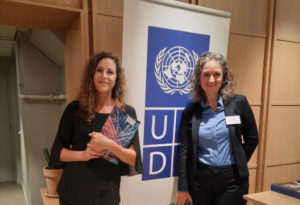UNDP’s Oslo Governance Centre and IDOS have published a new study on “Connections that matter: How the quality of governance institutions may be the booster shot we need to reduce poverty and inequality”

Current global crises are complex. Tackling issues separately or in sequence will be futile. Transformation can happen only when multiple issues are tackled at the same time. To help doing so, a new study by UNDP’s Oslo Governance Centre (OGC) and the German Institute of Development and Sustainability (IDOS) investigates how aspects of SDG 16 that are considered critical features of governance institutions – transparency, accountability and inclusion – help or hinder progress on key dimensions of SDG 1 on poverty and SDG 10 on inequality. The study is the first attempt to consolidate evidence on this link and fills a gap in the existing literature on how different SDGs can reinforce each other.
Based on a scoping literature review of 400+ academic papers, the study finds empirical evidence from across the globe that investing in accountable, transparent and inclusive governance can boost the reduction of poverty and inequality. For example, in election years, social benefits are better targeted to those with low incomes; reducing corruption is positively correlated with access to education and improved literacy rates; and civil society engagement enables the provision of health care access. It offers specific examples and initial policy insights on why, how and with whom national actors can use the employed methodology to identify, prioritize and sequence governance policies with ‘booster effects’ in their own country.
The study can be downloaded here: https://www1.undp.org/content/oslo-governance-centre/en/home/library/connections-that-matter–how-the-quality-of-governance-instituti.html
Schreibe einen Kommentar